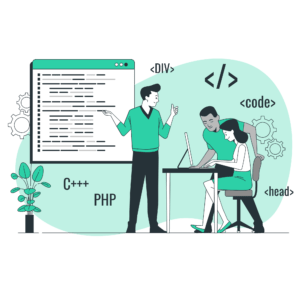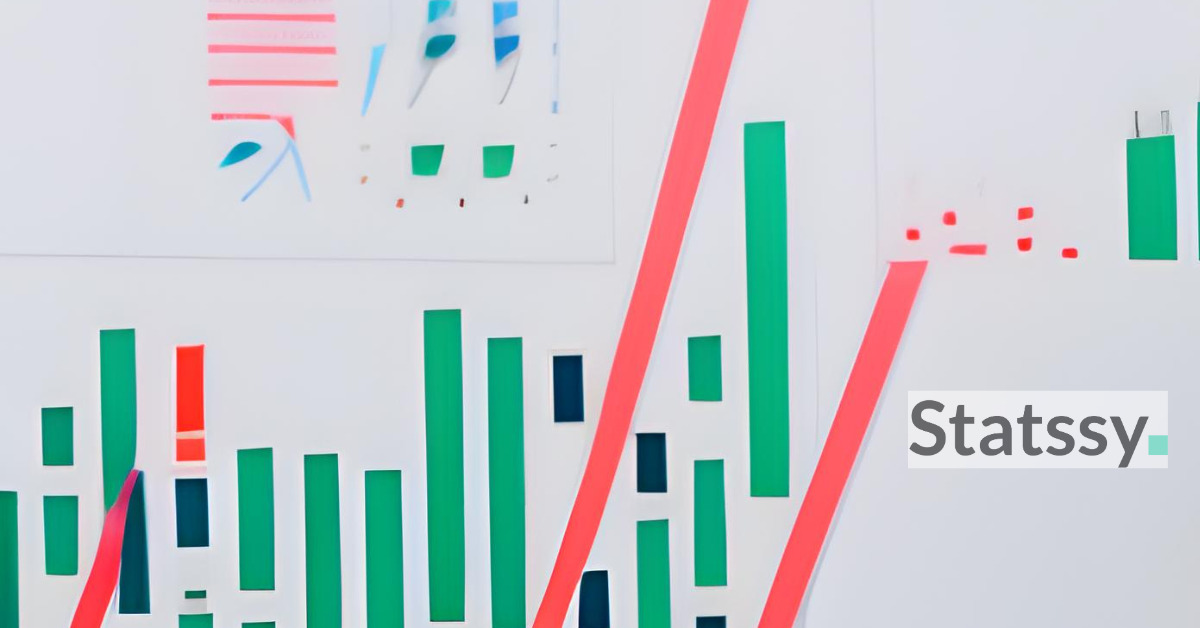The world of data science isn’t just reserved for those with a background in programming or computer science. In fact, there are many roles within this field that are perfect for individuals coming from a non-IT background.
If you’re interested in data analytics and machine learning, but don’t have programming skills, don’t fret. This article dives into some of the most prominent roles for non-IT professionals in data science, showcasing a variety of career paths and opportunities.
Table of Contents
Analytics Manager
First on our list is the position of an Analytics Manager. In this role, individuals oversee a team of data professionals, aligning data initiatives with business objectives. They are responsible for implementing data-driven solutions that drive growth, efficiency, and business insights.
According to Comparably, the salaries of Data Analytics Managers in the US range from $65,499 to $150,000, with a median salary of $118,000. According to Salary.com, the average Data Management & Analytics Manager salary in the United States is $119,911, but the salary range typically falls between $107,392 and $132,853.
Interested in this role? Be sure to check out our guide on analytics manager jobs to learn more about what this role entails and how to land a job in this field.
Business Analyst : Data Science Roles for Non-IT People
The next data science role on our list that doesn’t require programming knowledge is a Business Analyst. This role revolves around using data to inform business decisions and strategy. They bridge the gap between IT and the business using data analytics to assess processes, determine requirements, and deliver data-driven recommendations and reports to executives and stakeholders.
As per data from Glassdoor, the average base salary for a data analyst in the US was $69,517 in December 2021. On the other hand, JanBask Training states that the average salary for a Business Analyst in the US is $87,324 for those in their late career (20 years and higher).
If you’re curious about the intricacies of this role, have a look at our in-depth article answering the question: What does a Business Analyst do?
In the next part of the article, we will discuss more roles like Data Visualization Specialist, Data Quality Analyst, and Data Governance Analyst along with their salary ranges and job descriptions. Stay tuned!
Data Visualization Specialist
A Data Visualization Specialist is another significant data science role that is perfectly suitable for non-IT individuals. These professionals have the crucial responsibility of creating visual representations of data to help stakeholders understand complex data sets. Their work aids in decision-making processes and provides accessible ways for people to interpret vast amounts of information.
According to Glassdoor, the average salary for a Data Visualization Specialist in the US falls between $69,000 to $91,000 per year, but this can vary depending on seniority, location, and other factors. As of May 25, 2023, Salary.com reported that the average Data Visualization Specialist salary in Chicago, Illinois was $102,155, typically ranging between $89,362 and $115,090.
We have a detailed guide on Data Visualization Specialist job descriptions, offering an in-depth look into the day-to-day activities, skills required, and career path of this role.
Data Quality Analyst
Another non-IT role in the data science field is a Data Quality Analyst. These individuals ensure that data is accurate, complete, and consistent, which is integral to any data-driven decision-making process. They work to identify and rectify issues in data quality, using their insights to improve the data’s usability and value.
In the United States, the salary range for a Data Quality Analyst sits between $62,660 to $83,067 per year. It’s worth noting that the salary for a Data Analyst is higher than that of a Data Quality Analyst, with an average salary of $70,357 per year in the US.
To understand how a Data Quality Analyst differs from a Data Analyst, read our comparison article: Data Quality Analyst vs Data Analyst.
In the next part of the article, we’ll be discussing the role of a Data Governance Analyst, their salary range, job description, and the common skills required for these non-IT related data science roles. Keep reading!
Data Governance Analyst
A Data Governance Analyst is yet another role in the data science field that doesn’t require a background in IT. These professionals ensure that data is managed in a way that meets legal and regulatory requirements. Their role is critical in maintaining the integrity of the data and ensuring that it’s used responsibly and ethically.
Salary estimates for a Data Governance Analyst in the United States vary depending on the source and years of experience. According to Comparably, the salaries of Data Governance Analysts in the US range from $58,000 to $68,600, with a median salary of $63,300. Meanwhile, Glassdoor reported an estimated total pay for a Data Governance Analyst at $98,253 per year in the United States area, with an average salary of $79,785 per year. By contrast, Salary.com lists the average salary for jobs that require the skills of Data Governance at a much higher figure of $215,894, based on the United States National Average.
We’ve compiled more information about what a Data Governance Analyst does in a detailed guide on our website.
Common Skills for Non-IT Related Data Science Roles
Even without an IT background, there are certain skills that are highly beneficial to succeeding in data science roles. These include:
- Business Acumen: A strong understanding of business concepts and goals is important to ensure that data insights align with business objectives.
- Communication Skills: The ability to effectively communicate complex information in a clear and concise manner is key, as data scientists often need to present their findings to stakeholders without a technical background.
- Data Intuition: Data scientists need to have a strong intuition for data and be able to identify patterns and trends that may not be immediately apparent.
- Analytical Mindset: Data scientists should approach problems in a logical and systematic way.
- Out-of-the-Box Thinking: Creativity and the ability to come up with innovative solutions to complex problems are essential.
- Critical Thinking: Data scientists need to evaluate information and arguments objectively, making sound judgments based on evidence.
- Decision Making: Based on data analysis, data scientists need to make informed decisions and communicate their recommendations to stakeholders.
- Intellectual Curiosity: A desire to learn and stay up-to-date with the latest developments in the field is essential.
- Ability to Work Independently: Data scientists need to manage their time effectively and meet deadlines, often working independently.
In the next part of the article, we will be focusing on how you can prepare for these roles without a background in IT. Stay tuned!
Preparing for Non-IT Data Science Roles
Even without an IT background, there are various ways to prepare for a career in data science. Here, we provide some guidelines to help you chart your journey.
Gain Knowledge in Statistics and Mathematics
Statistics and mathematics are the backbone of data analysis. Familiarizing yourself with concepts like probability, hypothesis testing, regression, and calculus will provide a solid foundation for understanding data.
Develop Business Acumen
As we mentioned before, business acumen is crucial in data science roles. Understanding the industry you’re working in, knowing your organization’s goals, and being able to make strategic recommendations based on your data analysis are all key aspects of the job. Read industry-specific literature, attend relevant conferences, and try to get a sense of the larger business landscape.
Learn About Data Visualization
Data visualization is an effective tool to convey complex data in a way that’s easy to understand. Tools like Tableau, PowerBI, and even Excel are commonly used for this purpose. These are generally user-friendly and don’t require advanced programming skills.
Acquire Basic SQL Skills
SQL (Structured Query Language) is used to manage and manipulate databases. While it is a type of programming language, it’s much less complex than languages like Python or R. There are plenty of online resources and courses where you can learn SQL basics.
Take Online Courses
There are numerous online platforms like Coursera, Udemy, and edX that offer courses in data science and analytics. These courses cater to all levels and often provide the flexibility to learn at your own pace. This is a great way to build foundational knowledge in data science without the pressure of a traditional classroom setting.
Learn Through Practice
Theory and practical application go hand in hand in data science. Try to get as much hands-on experience as possible. This could be through internships, projects at your current job, or even personal projects. Data science competitions on platforms like Kaggle are also a great way to practice.
Remember, the path to becoming a data scientist is not a straight line, and it’s okay to carve your own path. The most important thing is to keep learning and stay curious. In the next section, we will cover some potential challenges you may encounter and tips on overcoming them.
Overcoming Challenges in Non-IT Data Science Roles
Embarking on a data science career without an IT background can seem daunting. You might feel overwhelmed with the technical concepts or worry about competing with IT professionals for job roles. But remember, your unique skills and perspectives are valuable in this field too. Let’s address some of these challenges and discuss how you can overcome them.
Challenge 1: Technical Overload
Data science is a multidisciplinary field that includes areas like statistics, business intelligence, and data visualization. If you’re coming from a non-IT background, some of these areas may seem challenging at first. Don’t let this discourage you. Take it one step at a time and remember that you don’t have to master everything. Focus on the areas that most interest you and align with your career goals.
Challenge 2: Imposter Syndrome
You might feel like you don’t belong or that you’re not as qualified as your IT peers. This is known as imposter syndrome and it’s quite common. Remember, everyone brings a unique set of skills to the table. Your non-IT background could provide valuable perspectives that IT professionals might overlook. Embrace your uniqueness and don’t let self-doubt hinder your growth.
Challenge 3: Keeping Up with the Latest Developments
The field of data science is always evolving. It can feel overwhelming trying to keep up with the latest technologies and trends. Consider subscribing to relevant newsletters, joining data science groups on LinkedIn, or following influential data scientists on Twitter. This can help you stay updated without feeling overwhelmed.
Challenge 4: Breaking into the Industry
Without an IT background, breaking into the data science industry can feel like an uphill battle. To overcome this, try to gain as much practical experience as possible. This could be through internships, volunteering, or personal projects. Networking is also key. Attend industry events and try to connect with professionals in the field. This can open up opportunities that you might not find through traditional job applications.
In conclusion, don’t let a lack of IT background deter you from pursuing a career in data science. With the right mindset and resources, you can successfully navigate this field and make valuable contributions. Your journey might be different from someone with an IT background, but that’s what makes it uniquely yours. Remember, it’s not about where you come from, it’s about where you’re going. So, if you’re passionate about data science, go for it!
We at Statssy wish you all the best in your data science journey. If you need any support or further guidance, don’t hesitate to reach out to us. We’re here to help you succeed!





